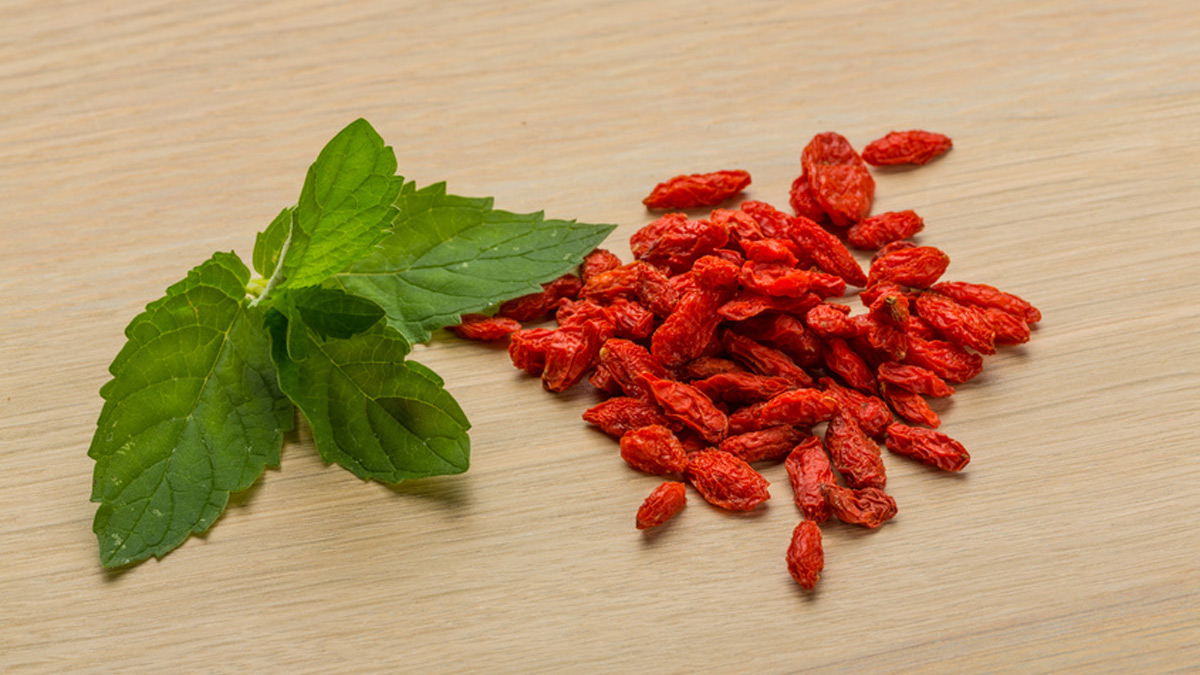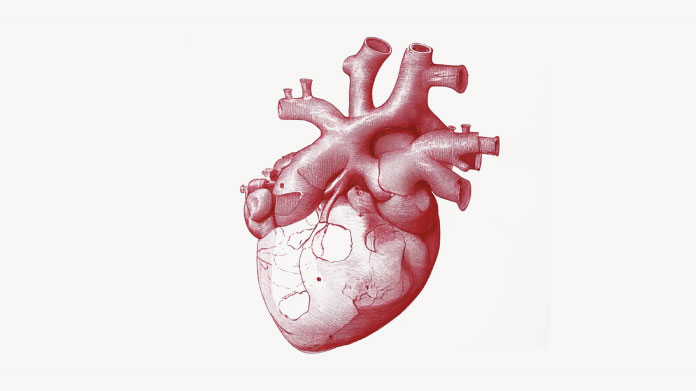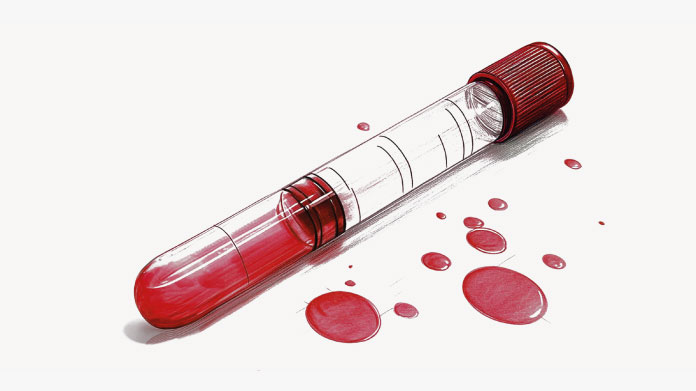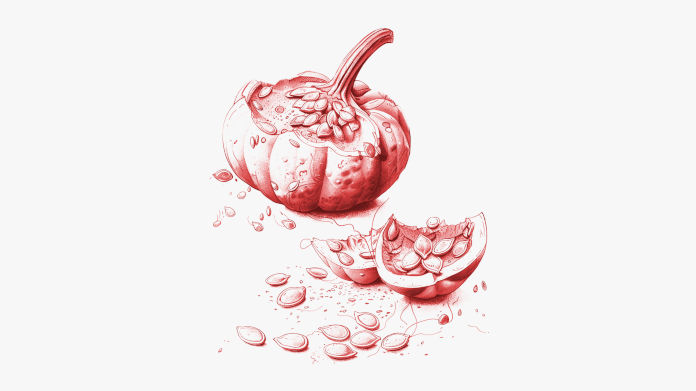Berberine: its anti-diabetes effect and benefits for health
You may not be aware of berberine supplements, but this natural active principle has actually been used therapeutically for many years, especially in traditional Asian medicine. Today, scientists are showing particular interest in berberine’s properties in relation to the management of type 2 diabetes...

What exactly is berberine?
Berberine is a natural active principle which takes its name from the Berberidaceae plant family from which it was first extracted. One of the best-known of these plants is the shrub barberry, or to give it its scientific name, Berberis vulgaris. Berberine is found in the small berries produced by the barberry plant. Nowadays, this is the main source of berberine but it has also been identified in other plants of the berberidaceae family including the species Berberis aristata and Berberis petiolaris. It is also present in other plant groups, particularly Ranunculaceae (Coptis chinensis, Coptis teeta…), Papaveraceae (Chelidonium malus, Sanguinaria canadensis…), Menispermaceae (Tinospora cordifolia…), Rutaceae, (Phellodendron amurense…), Fumariaceae and Annonaceae.
Why is it attracting scientific interest?
The berberine-producing berberidaceae family features significantly in traditional Asian pharmacopoeia. Several of its plants are referred to in the texts of Chinese and Ayurvedic medicine. These medicinal plants are traditionally used for their anti-diarrhea, anti-microbial and anti-protozoal activity. These powerful infection-fighting effects have since been attributed by science to several active principles including berberine. Over the years, research has revealed a number of other benefits for this natural active principle, particularly for the control of type 2 diabetes. You may have heard about the link between berberine and an oral anti-diabetes drug widely used in the initial management of type 2 diabetes. We explore this further in the next paragraph.
What is the link between berberine and the medication?
Research conducted on berberine shows it has a similar action to the medication. Considered to be the first treatment for type 2 diabetes, this oral-use drug has the same antihyperglycaemic mode of action as berberine. In other words, both medications and berberine act by reducing blood sugar levels and preventing the hyperglycaemia that characterises type 2 diabetes. Studies show that these two active principles work via different and complex mechanisms, some of which are described below. Current scientific data suggests that berberine could constitute a useful alternative to medication. Several studies comparing the efficacy of these two active principles have demonstrated positive results for berberine in reducing blood glucose levels in type 2 diabetics.
What are berberine’s properties?
As a result of its medication-like effects, berberine has been the subject of numerous scientific studies in recent years. Though by no means exhaustive, some of the most recent findings are outlined in the following paragraphs.
Antioxidant power. Like many phytonutrients, berberine acts as a natural antioxidant. This means it is able to combat oxidative stress, a process characterised by the production of reactive species in the body, which causes significant damage to cells and thus contributes to cellular aging.
Anti-aging effect. Because of these antioxidant properties, berberine helps to protect the body, prevent certain conditions and confer anti-aging effects. That is why berberine features in the composition of anti-aging supplements such as the formulation Longevity Nutrients. This combines an extract of Phellodendron amurense standardized in berberine, with an apple extract standardized in polyphenols, and a reishi extract standardized in polysaccharides. This anti-aging supplement offers even greater efficacy because berberine’s chemical structure means it combines easily with other active principles to increase their effects.
Anti-infection action. Plants from the berberidaceae family are highly-prized in Asia for their infection-fighting properties. Studies show that berberine combats the spread of certain infectious agents. For example, it has anti-bacterial properties that work against staphylococcus, streptococcus and salmonella. It also seems to act against other parasites, exerting anti-amoebic and anti-protozoal effects.
Anti-inflammatory activity. It may also fight inflammatory reactions induced by infectious agents. Several studies have shown that regular administration of berberine helps to reduce inflammatory responses.
Anti-diabetes action. As mentioned, berberine has the same antihyperglycaemic effect as medications. Studies show that it reduces blood glucose levels in various ways. One such method is its effect on an enzyme involved in glucose metabolism called AMPK. By enabling activation of this enzyme, berberine increases pancreatic hormone sensitivity and promotes the capture and use of glucose in the body. Studies suggest that it may also regulate neoglucogenesis, a mechanism which leads to synthesis of glucose by the liver. As a result of these different actions, berberine helps reduce blood glucose levels and combats the hyperglycaemia characteristic of type 2 diabetes.
Lipid-lowering potential. Due to its AMPK-activating effect, berberine also appears to improve the lipid profile by reducing blood levels of triglycerides and cholesterol.
What are berberine’s health benefits?
Due to its many beneficial properties, berberine is a molecule with significant therapeutic potential. Though not exhaustive, the paragraphs below list its traditional and more recent therapeutic uses.
Infectious diseases. In Asia, berberidaceae plants have been used for years to prevent and treat infectious diseases, particularly for fighting the infectious agents that cause diarrhea.
Type 2 diabetes. Berberine has been attracting scientific interest for several years for its medication-like effect against diabetes. It thus constitutes a significant aid to the management of what is an increasingly prevalent condition. In 2014, specialists estimated that type 2 diabetes affected more than 400 million people across the world, and that figure did not include the large number of undiagnosed diabetics.
Metabolic disorders. In addition to its benefits for the management of type 2 diabetes, it may also support the treatment of numerous other metabolic disorders. In particular, it may help prevent complications linked to excess weight and obesity.
Non-alcoholic steatohepatitis (fatty liver disease). Recent research has also identified benefits for the prevention and treatment of non-alcoholic steatohepatitis, more commonly-referred to as NASH. This is essentially inflammation of the liver caused by abnormal levels of fat storage in liver cells. In just a few years, NASH has become a major public health issue, as can be seen by the publication of several articles on the subject. Their titles - ‘Fizzy drink disease’, ‘Junk food disease’, or ‘Disease of the century’ - refer to its primary causes, namely our changing lifestyles and the trend towards consumption of fast-food and high-calorie products. With its antihyperglycaemic and lipid-lowering benefits, berberine is considered a promising therapeutic approach to preventing the complications associated with NASH.
How can you obtain the benefits of berberine?
Berberine is extracted from various plants and comes in the form of a yellow powder which is used to formulate a number of dietary supplements. For example, the berberine supplement offered in the SuperSmart catalogue is formulated from an extract of barberry (Berberis vulgaris) standardized to 97% berberine, one of the best doses available!
It can also be found in supplements combined with other active principles. An innovative formulation has been developed which contains extracts of Berberis vulgaris standardized to 97% berberine, Gynostemma pentaphyllum standardized to 98% gypenosides, and Buxus sinica standardized to 98% fisetin. Combined in the supplement AMPK Booster, these three extracts naturally boost AMPK, a key metabolic enzyme, the activation of which helps fight a large number of metabolic disorders: hyperlipidaemia, hypercholesterolaemia, and the hyperglycaemia characteristic of type 2 diabetes … Studies conducted on animal models show that AMPK activation may help increase longevity.
How do you choose the right dose?
As yet, there is no officially recommended dose for berberine. Current scientific data suggests that the dose may vary between 500mg and 1500mg a day, depending on individual needs, with some studies suggesting that in certain cases, this could even be increased to 2000mg/day for short periods and under medical supervision. In all cases, it’s advisable to seek guidance from a health professional in choosing the right supplement for your particular needs.
Are there any contraindications?
No major side-effects have so far been reported as a result of taking berberine supplements. However, as with any active principle, there may be certain contraindications. In particular, medical advice should be sought by those on any medication as berberine may interact with the active principles in certain drugs. And as a precautionary measure, berberine supplements are not recommended for children or for women who are pregnant or breastfeeding.
Keywords
2 Days
great products and prices
great products and prices
Marie
7 Days
Easy to navigate site
Easy to navigate site, had what I was searching for, good price. easy order-check out
James Tucker
14 Days
My skin is clearing up nicely!
Pretty good for my skin so far.
Christian
16 Days
The new packaging is excellent
The new packaging is excellent - finally! No more squashed boxes and torn envelopes.
GORAN
17 Days
Great Product
Great Product
Larry Garrett
21 Days
Quick shipping
Quick shipping; good price. No issues!
Mary McCarty
22 Days
Thr product is very good and is helping…
Thr product is very good and is helping me on my health. Then is always on time
LUGO Luz
25 Days
Buying was fine
Buying was fine. I had problems with the website not recognizing my login info, and had to call to get it fixed. Other than that, everything was good.
David S. Clark
25 Days
Your super maca and super ginseng are…phenomenal
Your super maca and super ginseng are phenomenal supplements that compliment each other when taking them together. Fantastic feeling of well-being and lots of mid day energy without the crash.
Keith Mason
28 Days
I have had amazing results with every…
I have had amazing results with every supplement I've purchased. I am extremely satisfied with this company
kirstin Torres
28 Days
Fine products
Fine products . They are on the leading edge of online supplements. The only issue -so far-is they sometime run out of subscription items.
Jason Argos
31 Days
The ordering process is very user…
The ordering process is very user friendly and the products always come in a timely manner.
CARTER Rhonda
32 Days
The price for Dr
The price for Dr. Pero's AC-11 is reasonable and in line with his views. (my former colleague). Keep it pure.
CAMPBELL Clayton
35 Days
Right on every time.
Right on every time.
Arthur Nicholas
37 Days
They are cheaper than everyone else and…
They are cheaper than everyone else and the shipping was fast. Great company.
Patricia Adams




